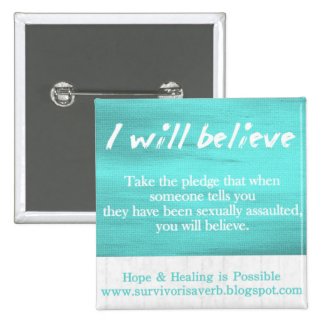I've really enjoyed this opportunity to share with you what I've learned since specializing in sexual assault recovery. It's a subgroup of clients that I've come to care about a great deal.
To wrap up this series, which has been in honor of Sexual Assault Awareness Month, I wanted to share with you a guest post I wrote for the Recovering Grace blog.
Recovering Grace is an organization devoted to supporting those who have been impacted by the ministry of Bill Gothard, a fundamentalist teacher and founder of the Institute in Basic Life Principles and the Advanced Training Institute. His teachings have been popular among conservative or "fundamentalist" societies and homeschool groups, most notably the Duggar family of TLC's 19 Kids And Counting.
Through this blog, former employees and students of Gothard's group have come forward to share their stories of sexual abuse and harassment under Gothard's leadership, some perpetuated by Bill himself and some by sanction of his authority or teachings. Hallmarks of his training are below, but it should be noted that not everyone who has been involved with the Institutes or those who have followed his teachings (such as the Duggars) believe in every principle put forth by him. Major beliefs usually include:
- A desire to allow God to control fertility, meaning no birth control including vasectomies and tubal ligations.
- Strict standards of modesty in dress and behavior, such as no kissing or handholding before marriage, skirts for women, no sleeveless tops, no shorts for guys, etc.
- A distaste for worldly things such as "rock" music (including Christian rock), drinking, dancing, and dating.
- Conservative standards on television, movies and internet use.
- Obedience and conformity to authority and conservative standards.
- Homeschooling, avoiding college, and avoiding debt.
Because I was homeschooled, I was raised on the fringe of this movement all my life. I was extremely fortunate to be raised by parents who were not involved in this movement and obviously supported my going to college, dating and marrying a man of my choosing, and pursuing my career as a counselor. But I had several friends who were involved in this group, and some of them still bear the scars of it today, such as shame, guilt, rejection of religion, depression, anxiety, and family strife.
This is an article more personal than perhaps any I've written, because I share briefly but honestly about a my experience on the fringe of a legalistic group.
I hope it will give you a window into a world that you may have never experienced before, and expand your awareness of a quiet but wounded group of people courageously seeking healing.

.png)
.jpg)

